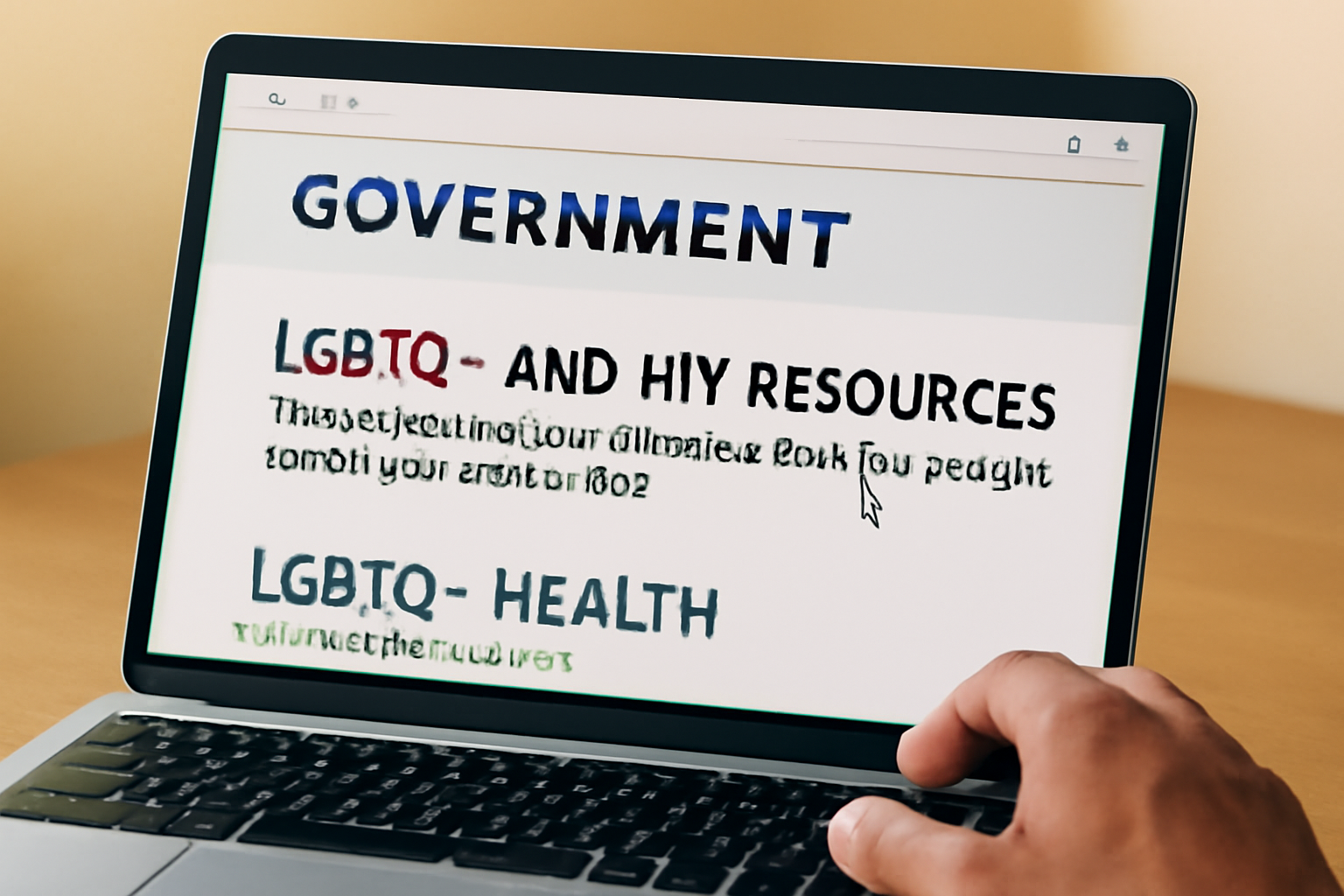
In a concerning development, recent evaluations of government websites reveal significant modifications to content referencing LGBTQ+ and HIV-related resources. These changes have sparked discussions and debates within the LGBTQ+ community and among advocates who emphasize the importance of accessible public health information.
The alterations, which were made quietly and without public announcement, involve the removal or significant reduction of information pertaining to LGBTQ+ issues and HIV prevention, treatment, and resources. These resources have been pivotal for many individuals seeking guidance, support, and medical advice.
Background on the Changes
Initial investigations into these changes began when users noticed discrepancies in the information that had been available on certain government websites. Historically, these sites have served as critical hubs for disseminating information that supports public health initiatives and provides vital resources for vulnerable communities.
Activists and researchers have documented that specific pages once dedicated to LGBTQ+ health and rights, as well as detailed sections on HIV prevention and treatment, have been either heavily edited or removed altogether. This shift has led to significant concern among health professionals and members of the LGBTQ+ community, who rely on these resources for safe and informed decision-making regarding their health.
The Impact of Content Removal
The absence of comprehensive and accessible information on government websites can have far-reaching implications. For members of the LGBTQ+ community, easy access to healthcare information, rights education, and support networks is crucial. The removal of such content may lead to increased misinformation and reduced awareness around critical health issues, particularly those affecting marginalized groups.
Furthermore, HIV resources play a key role in prevention and treatment. Information on testing, prevention methods like PrEP, and available support networks are essential for reducing transmission rates and supporting those living with HIV. The reduction in accessible information could potentially hinder public health efforts and exacerbate health disparities.
Community and Advocacy Responses
The response from the LGBTQ+ community and advocacy organizations has been swift and vocal. Many groups have condemned the changes, arguing that they reflect a broader trend of erasing LGBTQ+ identities and concerns from public discourse. They emphasize the need for transparency and accountability in how government agencies handle information that affects public health and individual rights.
Advocacy organizations have begun initiatives to provide alternative sources of information and resources. They are leveraging social media and other digital platforms to spread awareness about safe health practices and available support for LGBTQ+ individuals and those affected by HIV. These efforts aim to fill the informational void created by the changes on government sites.
Moving Forward: The Need for Vigilance
As discussions continue, there is a growing call for vigilance and advocacy to ensure that vital information remains accessible and accurate. Many experts highlight the importance of community-led efforts to monitor changes in public resources and advocate for their restoration when necessary.
Ensuring that government websites provide comprehensive and inclusive information is not just a matter of public service but also an ethical obligation to all citizens, particularly those in vulnerable communities. Transparency in these processes is essential for building trust and ensuring that public health initiatives effectively reach those they aim to serve.
In conclusion, while the recent changes to government websites are a setback, they have also galvanized communities and advocates to engage more actively in the fight for visibility and access to crucial resources. This situation underscores the ongoing need for informed activism and community solidarity in the face of challenges to public health and LGBTQ+ rights.
Related Posts
Triumphant Trans Woman Wins Legal Battle and Inspires Others to Stand Up for Their Rights
Breaking new ground: a landmark victory in transgender rights After battling in courtrooms and enduring endless challenges, Diana Portillo, a transgender woman, has secured a monumental victory in her decade-long fight against workplace discrimination. The result? Nearly $1 million awarded in a historic settlement. But this isn't just a win on paper—it represents a powerful precedent in combati [...]
Pride Month in Latin America: Protests and Demands for Equality
**Celebrating Pride and advocating LGBTQ+ rights in Latin America** Pride Month in Latin America was a lively mix where celebration met activism. Communities united, not just throwing a party but making a stand—demanding equality and pushing governments toward better protection and rights recognition. Throughout Latin America, pride events erupted in marches and cultural displays, each with a c [...]
Transgender Erasure Actions Implemented by National Park Service
```html Trump administration's impact on national park service and transgender recognition The Trump administration made notable moves in undermining transgender representation, which included directing agencies like National Park Service not include "T" and "Q" when they refered “LGBTQ” in any official communication. This move seems part a broader plan by this administration aimed at reducin [...]